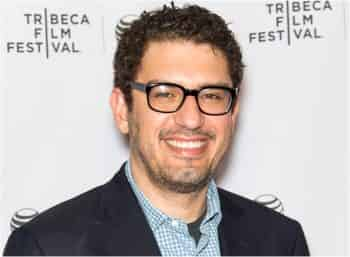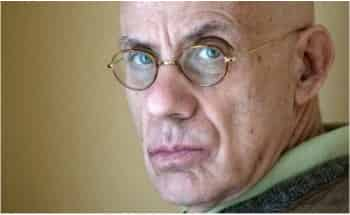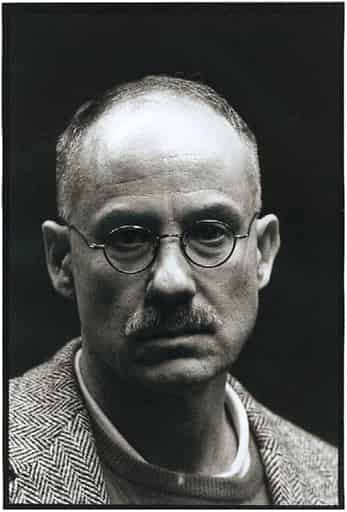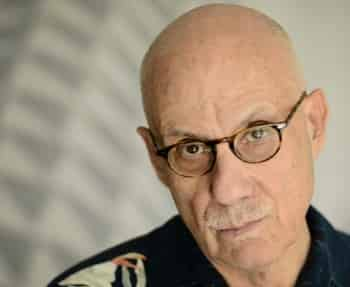
James Ellroy
Writing process
We really admire Ellroy’s outspokenness, which sometimes gives us pearls like this one: “It’s disingenuous when writers say that they have no control over their characters, that they have a life of their own. Here’s what happens: you create the characters rigorously, and make clear choices about their behavior. You reach junctures in your stories and are confronted with dramatic options. You choose one or the other.” (Nathaniel Rich. “Interviews: James Ellroy,” The Art of Fiction No. 201).
Naturally, not everyone has the same writing style. Christopher McQuarrie tells us about his: “We always start with an ending, so we always know where the story is going; knowing. However, never to stay married to it. I’ve stayed married to endings before and it’s been disastrous. You’ve got to let the story take its own course.” (“Christopher McQuarrie Gets Verbal on the Usual Suspects,” cinetropolis.net, April 13, 2014).
On a similar note, let’s look at this excerpt from and interview with Sam Esmail on the creation of the plot for the second season of Mr. Robot:
“Interviewer: Can we talk about Angela a little bit? Her scenes were probably my favorite this season — you have that emotional karaoke scene, but you also have that episode where she’s doing the hack that set my heart racing. Had you always envisioned this type of role for her?
Sam Esmail: No, no. This is the great thing about TV is that when you discover certain strengths in an actor you can then begin to exploit them in really fun ways. I was shooting the season finale last year, the shoe store scene, and she says that line about the Prada. I’m watching this scene in the edit bay, and I don’t know, is she enjoying this or is she embarrassed, is she shameful about how she treated this poor guy or is she actually getting off on it? I actually thought, Portia has this weird, uncanny ability to be right there in the middle. She was the one that spoke to me and guided what the journey of her character was gonna be this season.” (Jen Chaney , Gazelle Emami and Matt Zoller Seitz. “Mr. Robot Creator Sam Esmail on How He Handles Criticism of the Show,” www.vulture.com, September 28, 2016).
We can think about how actors bring a skill set to a project that the writer couldn’t have anticipated during the original creation. During any creative process, we make little choices that we hadn’t predicted 10 pages or 10 stories earlier. It’s these little alterations that open up a wide range of new options for the author. Therein lies the flexibility that seems to guide an author.
Can heroes ever find happiness?
Heidi MacDonald (“Why Andreyko’s Batwoman run starts with issue # 25,” September 09, 2013, www.thebeat.com) was questioning the cancelation of Batwoman’s upcoming wedding by the DC editorial team: “Meanwhile, it seems that marriage itself has been banned from the DCU, given DiDio’s ‘heroes can’t be happy’ dictate.”
We understand this point of view. We have often stated our admiration for James Ellroy’s noir fiction, which rarely end well. They say happy people don’t have interesting stories. Maybe it’s necessary for drama to dwell in the shadows of the heroes’ psyches to create viable scripts. We’ll say again that authors should use their effects in careful measure. Otherwise they run the risk of falling into the Little Mermaid syndrome (not the Disney version, natch.)
Thoughts on Vilains
In one of his posts, Chris Sims (“Arcade and Why Success Doesn’t Make a Villain Credible,” www.comicsalliance.com, June 22, 2012) says the villain exists to be an obstacle for the hero. And because the hero must eventually overcome, the best villains are those that provide more interesting obstacles. Sara Lima on the other hand offers a more nuanced point of view. She feels it’s the interactions between the hero and the villain that’s important (“What Makes a Good Comic Book Rivalry?” www.comicvine.com, April 5, 2012). We agree with her use of the word “rivalry,” which is more appropriate because it doesn’t predetermine which character must eventually triumph. Within such rivalries, some characters may be amoral. As James Ellroy said, “Evil is those beings that are without conscience, those who are incapable of feeling sympathy or empathy for other human beings [translation]” (James Ellroy, « Le temps des moutons », from Petite mécanique).
Writing and Political Opinion (Part II)
Here are the words of a commentator on Frank Miller’s criticisms of the Occupy Movement: “I always separate the artist from the art; if I distanced myself from one of my heroes just because they said something I don’t agree with, I would barely have any heroes at all. It just bothers me to see Miller thumbing his nose rather abrasively at the Occupy Wall Street protesters instead of offering up any constructive criticism or intelligent insights” (“Frank Miller Rages Against The Occupy Wall Street Movement,” www.geeksofdoom.com, November 17, 2011).
We close this discussion with the view of James Ellroy, who says that Americans don’t give a rat’s ass about their writers’ political opinions (James Ellory, « Le temps des moutons », from Petite mécanique). This is an attitude we feel should be espoused by more people, regardless of nationality.
Back to James Ellroy
We found a quote written by James Ellroy in the introduction to the first volume of the American Tabloid trilogy: “It’s time to embrace bad men and the price they paid to secretly define their time.” The sentence is a tribute to Ellroy’s talent. It’s also consistent with the spirit of our stories, and it’s an apt way to end the discussion on our obsession with bad guys.
Specifics about time and place
Our scenes often begin by specifying the location and the date and time. Several months after the first scripts had been written, we reread James Ellroy’s Underworld USA Trilogy, and noticed that he starts each chapter by specifying the city and the day where the action takes place. Surely, this was a subconscious influence on our approach.
Still on the topic of James Ellroy, we love the way he integrates his small plots into the grand scheme of History (with a capital H) and we take something of that away for our own scripts. So even if the action in our story is taking place in a contemporary setting, our heroes won’t affect the course of history. In fact, they are much more likely to be affected by it.








